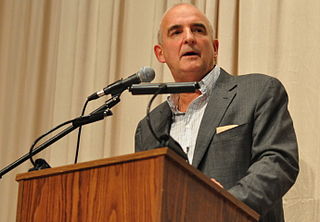A Quote by Roger Cohen
Interventionism is inextricable from the American idea. If the United States retreats into isolationism, it ceases to be itself ? a nation dedicated, however much it falls short, to a universalist ideal of freedom.
Related Quotes
What does the doctrine of American exceptionalism empower the United States to do? Nothing more than to act better than traditional empires - committed to looting and conquest - have done. So that's American exceptionalism: an exceptionalism based on noble ideas, ideas that it holds itself to even when it falls short of them.
I really love Japan, and I liked living there very much, and there are so many terrific things about Japan. However, I do think what's amazing is that Japan really prides itself on being monoracial. It doesn't have the same kind of idea as in the U.K. or Canada or the United States, in which the idea of diversity is a strength.
Woe to that nation whose literature is disturbed by the intervention of power. Because that is not just a violation against "freedom of print," it is the closing down of the heart of the nation, a slashing to pieces of its memory. The nation ceases to be mindful of itself, it is deprived of its spiritual unity, and despite a supposedly common language, compatriots suddenly cease to understand one another.
United States has always been very close to Africa and it's very sad now to see that Africa has a lot more friends - a lot more engagements with the Chinese, with the Indians, with the Brazilians as the United States retreats. Actually, Africa is a wonderful place to do business and American business is missing a big opportunity by really overlooking Africa.
As the government of the United States is not, in any sense, founded on the Christian religion; as it has in itself no character of enmity against the laws, religion or tranquility of Musselmen [Muslims] ... it is declared ... that no pretext arising from religious opinion shall ever product an interruption of the harmony existing between the two countries.... The United States is not a Christian nation any more than it is a Jewish or a Mohammedan nation.
If there be a principle that ought not to be questioned within the United States, it is that every man has a right to abolish an old government and establish a new one. This principle is not only recorded in every public archive, written in every American heart, and sealed with the blood of American martyrs, but is the only lawful tenure by which the United States hold their existence as a nation.
There has been sort of, if you will, a moral interventionism on the part of the United States trying to reshape countries in our own image. Now, we had to go into Afghanistan. We didn't have to go into Iraq. But the idea that you could create a Vermont in the Middle East like that was naive from the beginning.
As the United States continues its slow but steady recovery from the depths of the financial crisis, nobody actually wants a massive austerity package to shock the economy back into recession, and so the odds have always been high that the game of budgetary chicken will stop short of disaster. Looming past the cliff, however, is a deep chasm that poses a much greater challenge -- the retooling of the country's economy, society, and government necessary for the United States to perform effectively in the twenty-first century.
































